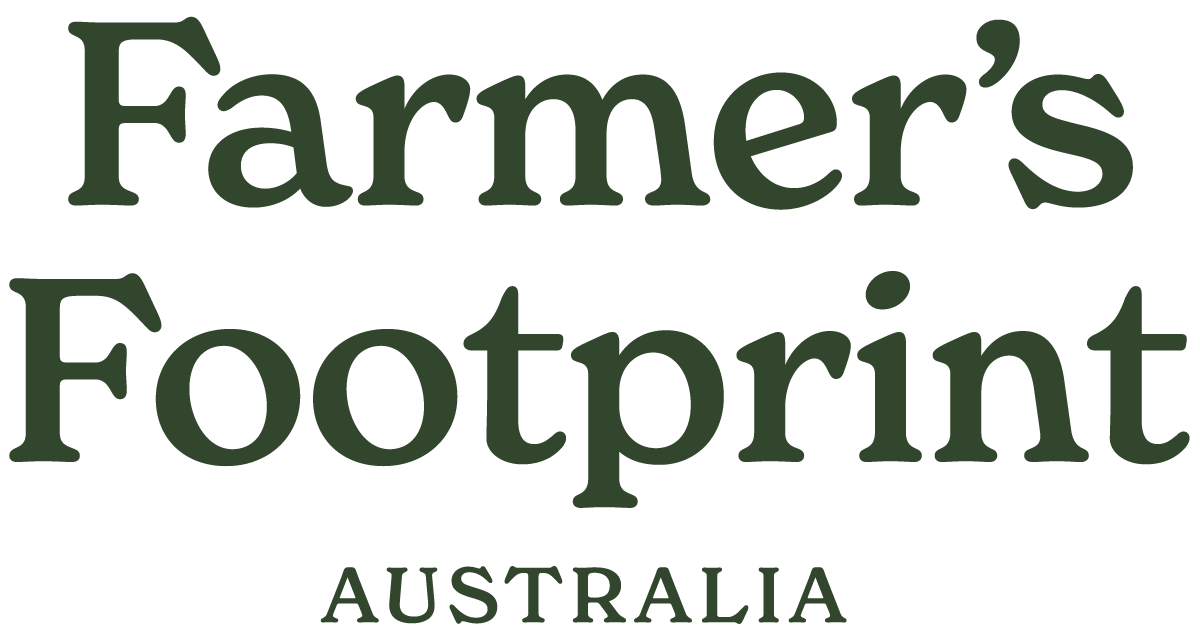Farm Yarns
Jandarra Farm
If we look after this land, it will look after us too.
– Tania Potts from Jandarra Farm
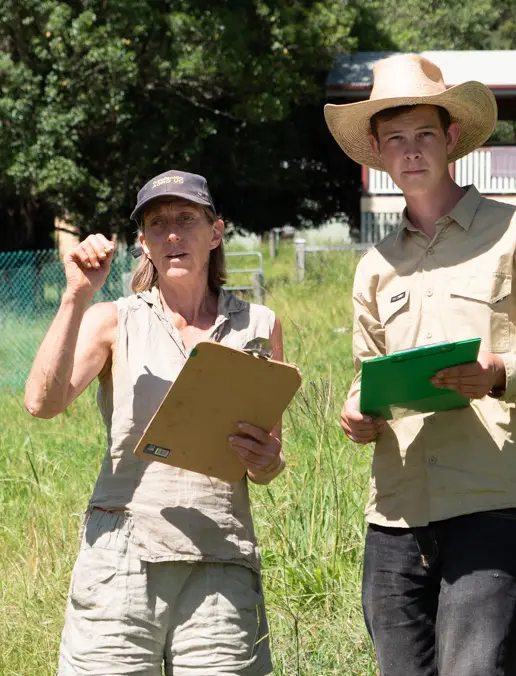
It began with a message from the land in the post
Despite growing up in a conventional household with a typical Australian education, Tania Potts always felt compelled to seek out alternatives to mainstream practices. She was drawn to look for the less travelled route. Such routes led her to become a commercial pilot and military air traffic controller early in life before marrying in her late twenties. When it came to raising her four children, homeschooling presented itself as the obvious fit for her family.
During that time of her motherhood, Tania became uncomfortably aware of our society’s addiction to the overuse of plastic and the perilous risks it posed to our health. This inspired her to create the not-for-profit organisation Boomerang Bags, focusing on single-use plastic education and sustainable behaviour change.
Years on, as her mothering and enterprising careers took wings of their own, Tania moved to a farm in Tallebudgera Valley, where another career emerged into existence. Prior to her arrival, an Indigenous Elder energetically cleared the land and sent Tania a letter of what the land ‘wanted her to know’. The Elder said the land had asked to stop being dug up, turned over and torn up. The previous owners had built ten dams, put in kilometres of fencing and cleared bushland to create drivable paths. The name she was given by the Elder was Jandarra – meaning place of peace.
The steep and rocky terrain of Jandarra made cattle grazing the most ecologically viable source to improve the land, however, being a small property, becoming financially viable as a primary producer seemed unlikely. After an eighteen-month council process, Tania was able to change the material change of use to ‘nature-based tourism and community use‘ and introduced Hipcamp. This new venture has allowed her to open the gate to the community through camping experiences and workshops, creating many conversations around the why and the what they do at Jandarra.
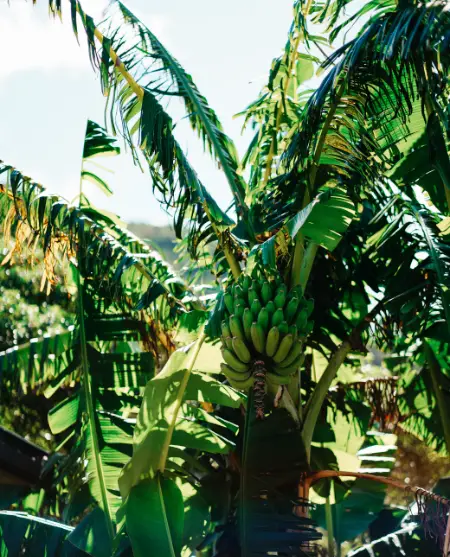
I believe Jandarra has a transcendent purpose and I get a strong sense that if we look after this land, it will look after us too.
– Tania Potts
Healing the land collaboratively
What are your intentions and aspirations for Jandarra?
My intention for Jandarra is to develop and implement practices that support the land’s ability to self-organise back to an improved state of health and resilience, increasing its diversity, then measure the changes through observation and EOV monitoring with the Savory Institute.
Charles Massey, author of ‘Call of the Reed Warbler’ a book on regenerative practices in Australia, summarised in his findings that farmers were wanting to enable their land to heal, as opposed to dominating it. I believe Jandarra has a transcendent purpose and I get a strong sense that if we look after this land, it will look after us too.
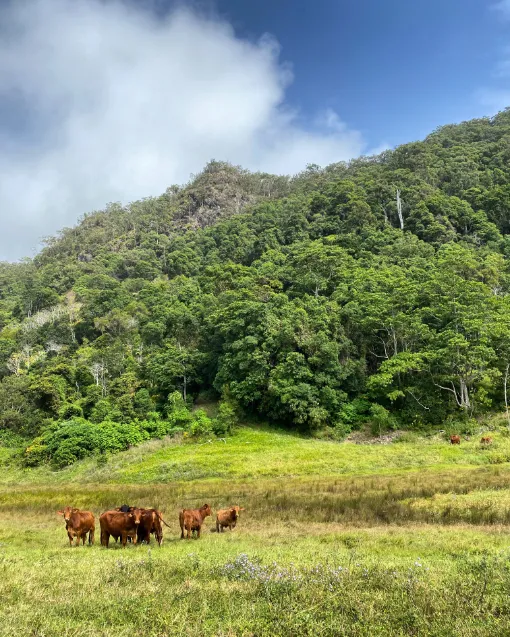
How cattle promote regeneration
With the introduction of cattle and holistic management practices, what positive influences have you observed with your pasture health and landscape function?
After completing the Holistic Management Course through the Savory Institute and grazing clinics with Resource Consulting Services (RCS), a grazing plan was implemented. As a result, more electric fencing and water points were added, increasing the number of paddocks and giving time to rest more paddocks. That practice alone has increased the amount of grass, enabling more head to be carried through the summer months (Cattle are an important tool in this process as a ruminant’s urine contains a hormone which stimulates the growth of healthy pastures)
The weeds change, a lot has gone now such as fireweed and balloon cotton. Since being introduced to biodynamics I have added a regime of spraying paddocks with biodynamic ‘preps’, building compost piles and adding a cow pat pit. I use various ferments and teas for fertility and spray them on the veggie gardens and paddocks. It is changing; observation is key which means being outside every day and developing an ecological literacy, which is hard at times to understand what is going on.
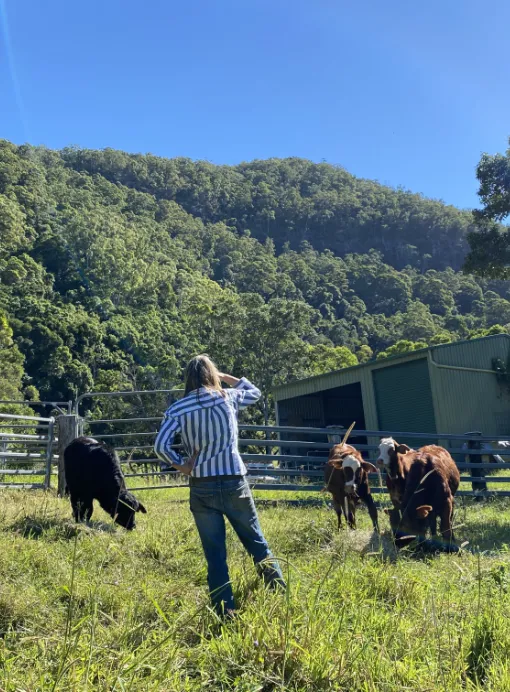
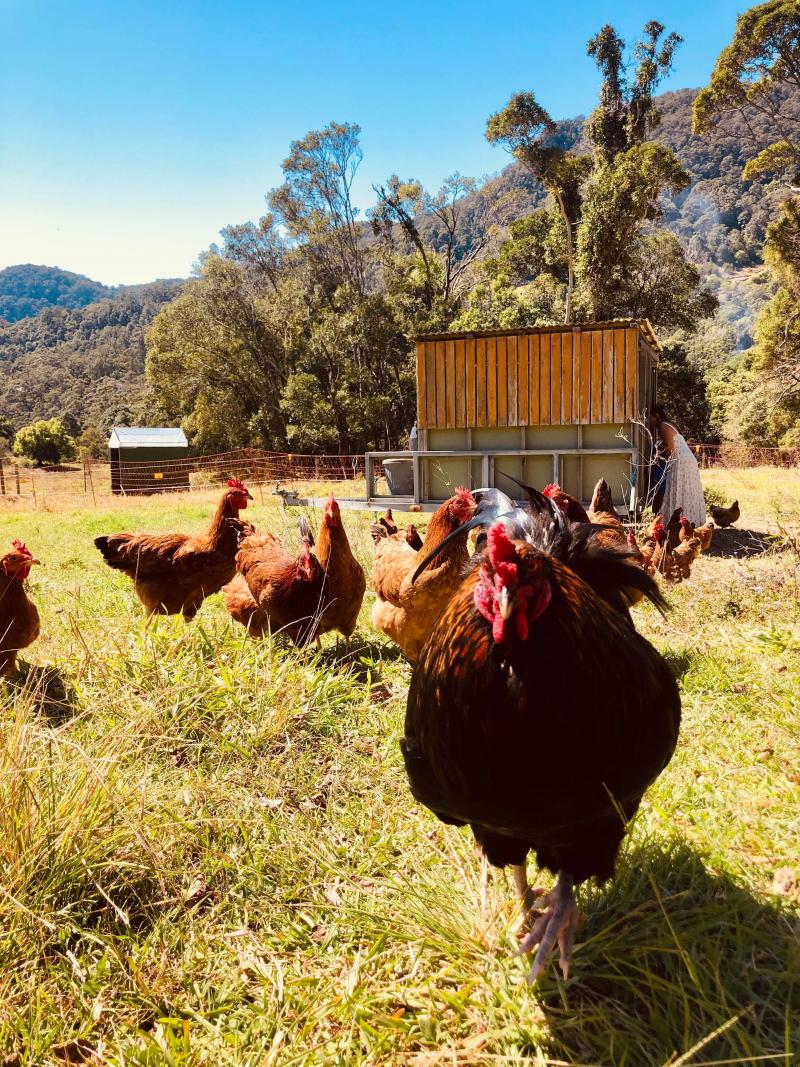
Managing the farm ethically as well as ecologically is the vision…We are small but liken it to ‘shouting in the quietest way possible’
– Tania Potts
Holistically measuring regeneration
The Ecological Outcome Verification™ program was launched by the Savory Institute and is managed in Australia by Land to Market. What was your motivation behind enrolling in the EOV program?
Knowing nothing about cattle and regeneration until a few years ago, I completed the Holistic Management Course with Brian Wehlberg and have been on a steep learning curve ever since. Stumbling across a podcast on EOV with Victoriah Kaziah, the brand manager for the Savory Institute, I really resonated with how this kind of monitoring gives the land a voice.
Furthermore, it gives consumers the confidence and assurance that when purchasing produce from a regenerative farm with the EOV seal, the land is on a positive ecological trend. Having this data indicates whether the practices and procedures undertaken are improving the ‘land health index’. Some of the measurables include improved water retention, increase in plant and insect biodiversity, soil organic matter and increased ground cover. If these don’t improve each year, the land is not considered to be regenerating. For a newcomer to the scene, this verification helps me refine methods to create a more healthy and lively functioning ecosystem.
Community-led cultural conservation
Along with your intention to improve ecological health on the farm, what role does Jandarra play in your community – both environmentally and socially?
Tallebudgera Valley Nature-Culture Alliance is a newly established group of landholders who have formed for the purpose of regenerating ecological communities and together we have planted 1500 native trees on the farm and adjoining creeks to stabilise riparian and eroded areas.
Managing the farm ethically as well as ecologically is the vision. Having the development approval for camping has been a stroke of good fortune, allowing connection with many wonderful people who have chosen to visit or stay at Jandarra. We are small but liken it to ‘shouting in the quietest way possible’. It’s a wonderful thing to see campers leave feeling rejuvenated, inspired and willing to make positive changes in their lives.
Since coming onto this land, what has been your greatest challenge in reviving your landscape?
The greatest challenge continues to be discovering how much there is to know. As the percentage of Australian farms using regenerative practices is still small, those in the conventional system can cast a questioning eye. Thankfully the land is responding gloriously and I am grateful that there are many regenerative farmers willing to share their knowledge freely and often, so that small farmers new to the game can be inspired and nurtured through the process. I believe there is no shortage of women who are stepping up into this role.
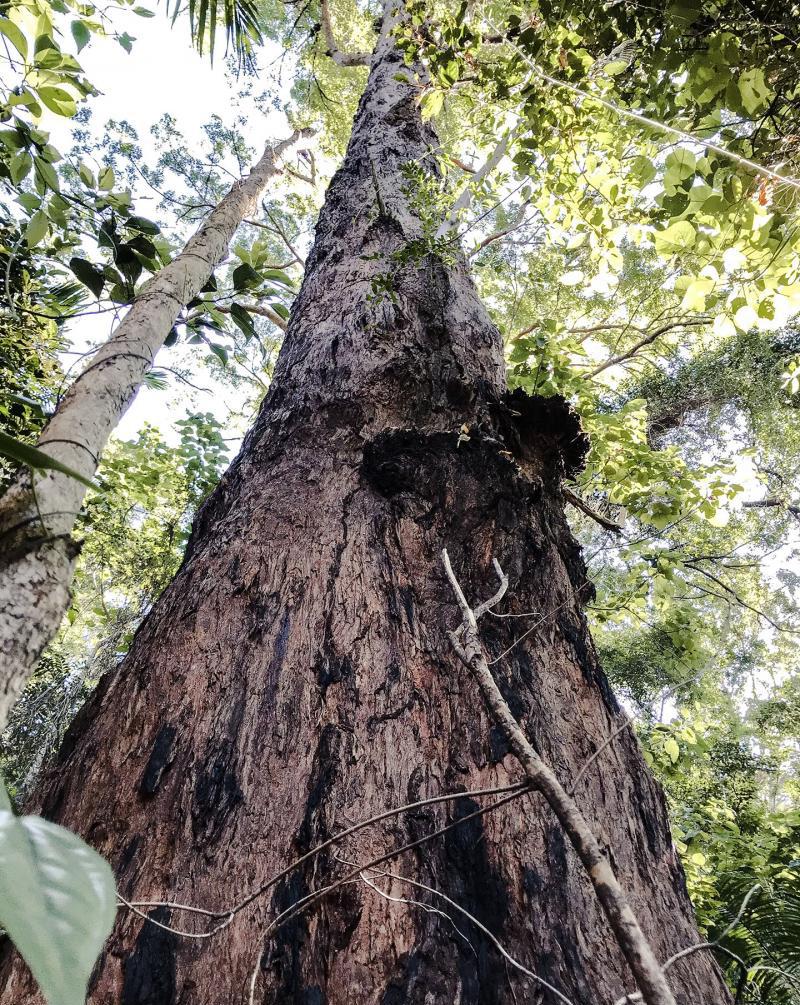
The greatest challenge continues to be discovering how much there is to know"
– Tania Potts
Standing on the shoulders of giants
What resources have been most helpful on your journey of regenerating your landscape that you can recommend to other new-earth farmers?
The Savory Institute and Resource Consulting Services (RCS) both have loads of resources, courses and field days and anyone starting out will find something to plug into and implement, however small. It’s been a five-year journey so far and it feels like I’ve been drinking from a firehose, catching as much information as I can while it comes hurtling out at speed.
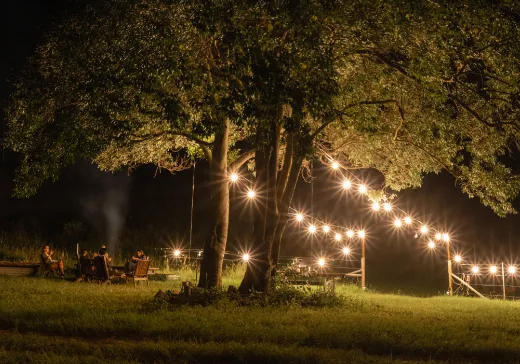
Nature-based tourism
How has the addition of Hipcamp supported your ability to engage in the agritourism sector and diversify your operation?
Since introducing the offer of camping experiences, many are drawn here to find out about regenerative practices. By having people stay here, it gives rise to ‘campfire conversations’ and the opportunity for visitors to observe the abundance and diversity while exploring the self-guided trails.
Recently Jandarra became eco-certified through Ecotourism Australia, this has further solidified Jandarra’s commitment to ethical and ecologically sound practices and our ability to provide high-quality nature-based tourism experiences.
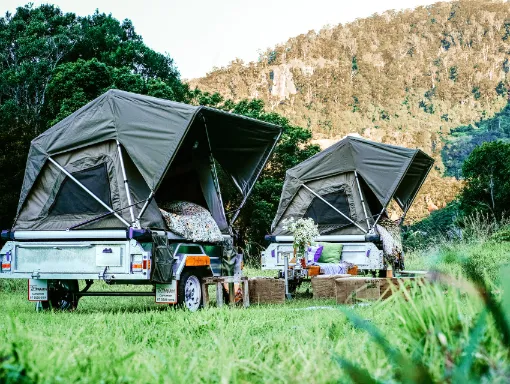
Unconventional education
We have seen examples of tourist accommodation as a value-add to farming operations. Less common is the value-add of education – tell us about the ‘Unconvention Centre’?
With the farm approved for community use and nature-based tourism, the large barn is used for workshops such as fermentation, composting, worm farms, bush tucker and wilderness survival skills. It’s also a place to gather with people from all walks of life in a casual atmosphere and talk. There is also an abundance of books – mostly on regenerative ag!
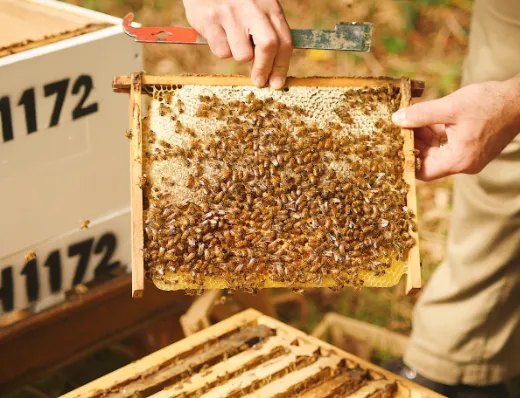
Support empowered storytelling
Your support helps us accelerate the transition to a regenerative farming future.
Follow on Instagram
See what’s going on at
Jandarra Farm.
Learn More
Find out more about Jandarra Farm from the link below.
